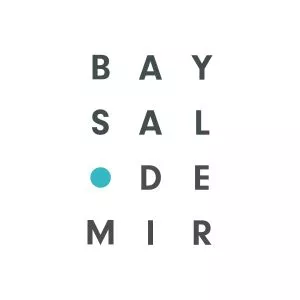- in Turkey
- within Insolvency/Bankruptcy/Re-Structuring, Litigation and Mediation & Arbitration topic(s)
As part of the support program provided by the European Union to assist candidate countries in implementing legal and administrative reforms, the Ministry of Commerce officially launched the "Product Safety in E-Commerce" project in mid-2024. The first concrete step of this project was the issuance of the "Regulation on Market Surveillance and Inspection of Products Supplied Through Remote Communication Tools" on October 30, 2024.
This regulation, set to come into force on April 1, 2025, finds its legal basis in the Product Safety and Technical Regulations Law No. 7223 and the Framework Regulation on Market Surveillance and Inspection. Strengthening the administrative, financial, and technical infrastructure of the competent authorities responsible for implementing this legislation remains a priority on the Ministry of Commerce's agenda.1
The Ministry of Commerce, designated as the "single point of contact" and tasked with ensuring coordination and collaboration among authorized agencies according to the regulation, has drafted this legislation not only for products within its own realm but also for the products under the purview of other ministries, such as the Ministry of Industry and Technology,
As for the definition of "product," it follows the current legislation, encompassing "all types of substances, preparations, and items." Whether software programmes fall under this definition, however, remains unclear.
The Ministry has highlighted four key changes introduced by this regulation on its official website:2
1. Requirement to Have an Economic Enterprise Based in Turkey
Article 5 of the regulation stipulates that if a product is offered with a "Turkish language option" on the relevant website, it will be considered available on the Turkish market. Furthermore, it specifies that certain products can only be available on the market through an economic enterprise based in Turkey.
The economic enterprise can be:
- The manufacturer based in Turkey, or, if the manufacturer is abroad:
- The importer,
- The authorized representative of the manufacturer, or
- The performance assistance provider.
The term "performance assistance provider," introduced to the Turkish legal system for the first time by this regulation, is defined as a "natural or legal person who offers at least two of the following services without taking ownership of the product: storage, packaging, addressing, and shipping services, excluding postal services, parcel shipment services, and freight transportation services." Depending on the nature of its role in the product and supply chain, a performance assistance provider may sometimes be held liable as a distributor or even as a manufacturer.
The list of products that must be made available only by an economic enterprise based in Turkey is published on the Ministry's official website.3 This extensive list includes a wide range of items, from toys to electronics, construction materials, and watercraft.
2. Requirement to Include Product Information in Sales Announcements
Article 6 requires that online sales announcements include the name, registered trade name, and contact address of the manufacturer or, where applicable, another resident economic enterprise, including an email address. Additionally, it requires:
- Warning and safety information in Turkish and conformity marks that must be affixed to products according to relevant technical regulations, and
- A photo of the product, its type, and all identifying details.
If a competent authority detects non-compliance with these requirements, it will issue a written notice to the economic enterprise requesting rectification.
If the issue is not resolved within two business days, the economic enterprise cannot be reached, or the product presents a serious hazard, the competent authority may impose administrative penalties4 and request removal of the content or restrict access to it.
3. Non-Compliant Product Listings to Be Removed Within 24 Hours
The regulation also extensively covers the obligations of intermediary service providers who play a significant role in the online marketing and availability of products. According to the regulation, these individuals or entities providing an electronic commerce environment for the others' economic and commercial activities must:
- Design and organize the platform to enable the relevant economic enterprises to provide required information in their advertising listings,
- Remove or block access to content related to non-compliant products as soon as they become aware of it and notify the competent authority,
- Inform end-users without delay in cases of product recalls,
- Retain information, such as the commercial name and contact details of the previous and, if applicable, subsequent economic enterprise in the supply chain, for at least ten years, and
- Maintain ongoing cooperation with competent authorities.
As part of this cooperation, intermediary service providers are also assigned additional obligations. Specifically:
- They must comply with administrative actions imposed by competent authorities as part of market surveillance activities (e.g., removal of non-compliant listings from the platform) within 24 hours.
- Competent authorities may request intermediary service providers to ensure that the infringing content does not appear on the platform in the future.
- If the intermediary fails to comply, the competent authority may request the Information and Communication Technologies Authority to block access to the URL and apply similar penalties.
4. Platforms to Designate a 'Product Safety Contact Point'
As previously mentioned, intermediary service providers have several cooperation and notification obligations toward public authorities and end-users.
Article 10 requires intermediary service providers to establish a "product safety contact point" to enable them to quickly fulfill these obligations and remain accessible at all times. This "contact point" is defined in the regulation as an "electronic communication address." Its primary purpose is to facilitate the administrative authorities' instructions and requests, and to inform end-users in a traceable manner in case of recalls or similar incidents.
The regulation addresses a crucial need for the oversight of electronic environments, which are increasingly widespread and replacing conventional sales networks. This regulation, aiming to enhance alignment with European Union legislation, assigns significant roles and responsibilities to local actors. These actors have a relatively short period until the regulation comes into effect on April 1, 2025, to adjust their organizational structures and workflow processes in accordance with these provisions.
Footnotes
4. Some of the relevant administrative fines stipulated by Article 20 of Law No. 7223, titled "Administrative Fines," are as follows:
- Between €899 and €8,993 if the product lacks the required model, batch, and serial numbers or other identifying information per regulations;
- Between €899 and €8,993 if the economic enterprise fails to provide the name, registered trade name or brand, and full contact address;
- Between €1,285 and €12,845 if the product lacks necessary information for end-users to take precautions against potential risks;
- Between €1,285 and €12,845 if installation, usage, and maintenance instructions, as well as safety guidelines, are not provided;
- Between €2,569 and €25,689 if the product does not comply with technical regulations;
- Between €6,424 and €64,246 if the non-compliance also poses a serious safety risk.
These amounts are re-evaluated annually based on market conditions and are valid until January 1, 2025.
The content of this article is intended to provide a general guide to the subject matter. Specialist advice should be sought about your specific circumstances.



